So many companies are still relying on the traditional method of stuffing their services/products down their customer’s throats without realizing sales funnels are the way to go now. Customers are smarter now and building a relationship with them is required before we expect them to spend their hard-earned money.
With the help of a sales/purchase funnel you can build that relationship step by step. It is a pre-planned journey laid out by you that the customers will take for buying your product. It generally involves the following steps:
Awareness – this is the point where the customer is introduced to your brand for the first time as a result of your marketing efforts like blogs, podcasts and webinars. You now have a lead.
Interest – this is where you’ll nurture the lead and engage them through opt-in forms and email marketing.
Decision/Offer a Solution – after building a relationship with the lead you can tell them that you have a solution for their problem. You could offer a trial signup or free tool.
Close the Sale – when the lead has tried you out through the demo or free version, you can close the sale. Throw in some discounts or bonus for a limited period of time.
Follow Up – old customers are gold for businesses that have more than one product/service to sell so you need to keep reaching out to them.
Let’s take help from some sales funnel examples to get inspired.
1. Partnership Webinars Funnel
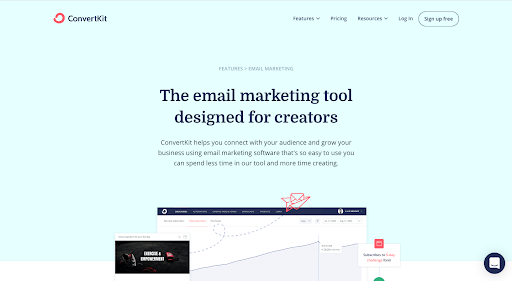
Webinars are great to make your business grow even if it’s a small business. The email marketing software business ConvertKit started hosting webinars in partnership with ConvertKit affiliates and went from making $70-$80 per month to over &600k every month!
They used their existing customers (mostly bloggers) to reach more people by maintaining an affiliate program that anyone can join and then hosted webinars with them.
Since the bloggers had their own audience full of fellow bloggers they found the ideal customers for their services. The webinars were information-loaded and instead of pushing people to buy their products, they were helping them. At the end the audience was convinced to sign up for the trial. Free courses, T-shirts etc were also given to people.
This type of sales funnel is excellent for startups with a limited budget – all you need is a webinar tool and email marketing software along with any number of affiliates to work with. It works well for a narrow target audience like bloggers in this case.
2. Free Product Funnel
When you need more than just the email address of a customer a free trial, discounted price isn’t enough. Like in the case of Russel Brunson, he offers a completely free book to his customers if they type in their name and address (they pay for shipping but the book is free).
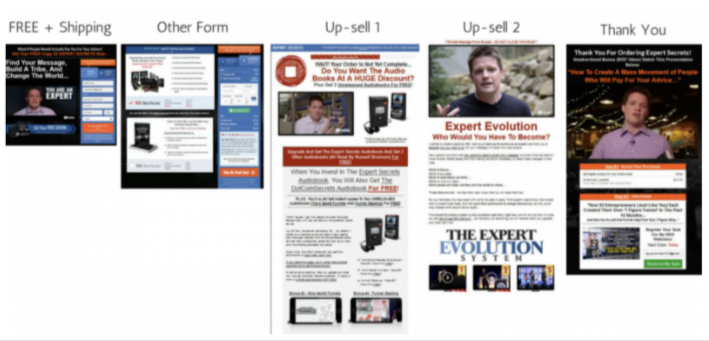
Here is how it works:
The customers learn about the owner (through social media, ads or blogs) and are moved towards the landing page where they exchange their information for a free book. The customer is then immediately given a one-time offer to buy another product (usually with a time-bound discount or bonus item).
This way he gets a long list of strong leads who buy a lot more from him than the book he gave away.
Companies that have multiple items to sell (expensive ones too) should use this funnel so that they can upsell (sell a product of higher value than what the customer has purchased), multiple products to each lead.
For companies with a smaller budget, a free eBook is a good way to generate leads and learn about your customers.
3. Free Tool Funnel

A way to get people interested in your product is by giving them a free tool to use with no hidden conditions like CoSchedule uses Headline Analyzer Studio.
Instead of just a free trial for a month, CoSchedule offers a completely free tool which allows people to test their headlines and then work on them based on the suggestions. Hence this upgrade is worth a lot for bloggers.
If you have a service that should be tested out for months before someone decides to buy it, this funnel is for you. You can show everyone exactly what you’re offering and if they’re happy they’ll upgrade to a premium version of the product.
4. Free Demo Funnel
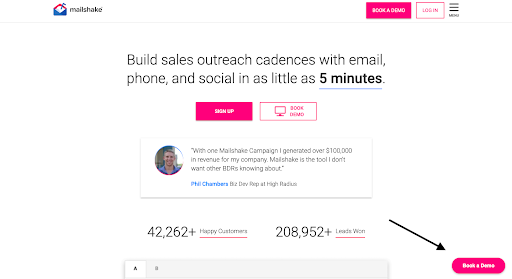
Through this sales funnel potential customers are given a demo of the product without having to offer free trials like customers of Mailshake can book a demo before they invest.
When the customers learn about the product (through blogs, webinars, affiliates etc) they visit the landing page and book a demo. Then they will be prompted to select a time and date for the 30- minute demo session after which a confirmation email (and reminders) will be sent.
The demo will include a run-through of how the product works and how it’s beneficial for you hence resolving all queries.
An expensive service targeted towards companies or a personalized service can make use of this funnel. The multiple features of the service can be best displayed through a demo.
Through demos, live chats and consultations, a relationship and trust can be built with the customer who is then easily willing to spend on whatever you’re offering.
5. Free Trial Funnel
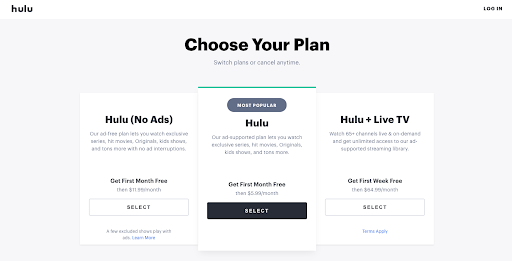
You give your customers a month to free subscription to the service after which you can start charging them just like Hulu does.
After the customers discover the brand (via social media, ads, blogs etc) they are directed to the landing page with a Call to Action offering a free trial for a month. This sales funnel is good for subscription models that can afford to give a month long free trial.
6. YouTube Sales Funnel
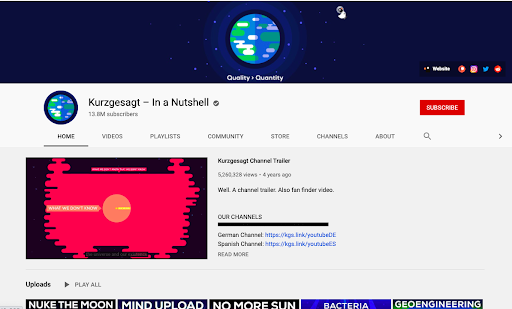
For this sales funnel, let’s take the example of Kurzgesagt (a digital marketing agency) that gets its customers by uploading really cool videos on YouTube and have a massive following.
The people who watch the videos on YouTube get an idea of the work that these guys can produce and if they are impressed, they hire the agency for their work – so their videos are actually demos of their services.
If you’re the creative type, this sales funnel is for you. Showcase what you’re capable of and get hired.
7. Featuring Famous People Sales Funnel
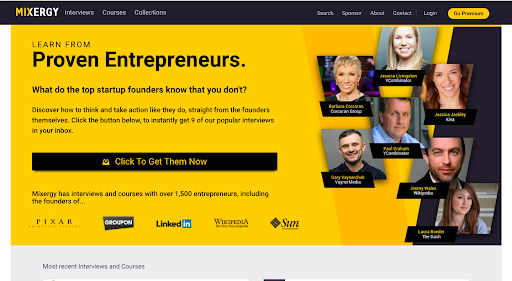
By featuring online courses and interviews from famous people with large followings you can generate leads and then nurture them into signing up for the premium version of your service just like Mixergy does.
The customers give their email address and can access a free video interview through the link in their email inbox. Then the lead nurturing process becomes – the aim being getting them to sign up for the premium version and fill in the monthly subscription plan.
This funnel is great for companies offering membership-only content.
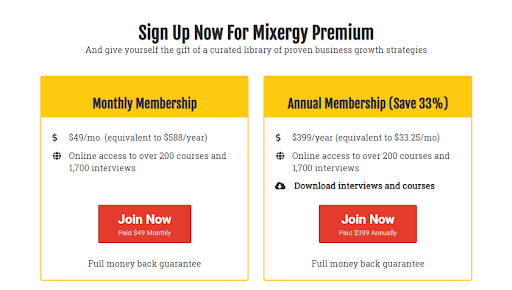
The underlying principle of a good sales funnel is to approach each customer in order to help him/her solve a problem or achieve a goal instead of selling them your product/service – build a relationship with your leads and see how your business grows!
4M Designers understands your business, your objectives and your concerns – hand over your web needs to us and sit back while we take it to the next level!


